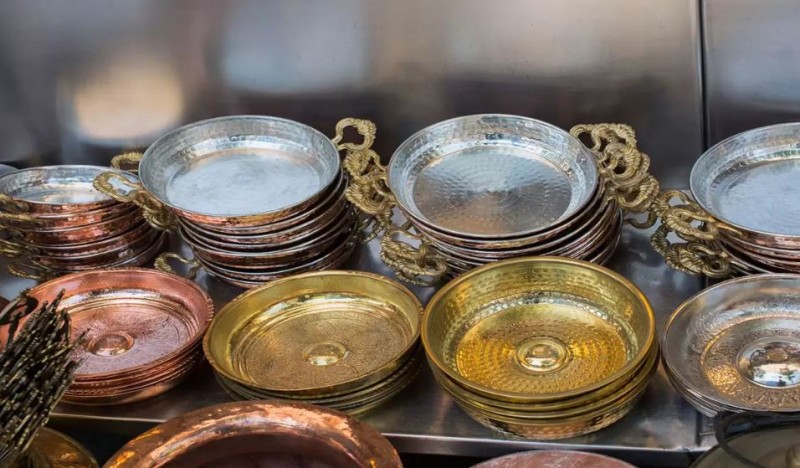
Ensuring the nutritional value of our meals often revolves around discussions of vegetables and the spices used in cooking. However, it's equally essential to pay attention to what we're cooking and in which utensils. Sometimes, in our haste or lack of awareness, we neglect to consider the impact of the utensils we use for cooking, which can significantly affect our health.
Understanding what we're cooking and in which utensils we're cooking it is crucial. Using the wrong utensils can directly impact our health. Nowadays, many people opt for fancy-looking utensils made from various metals to enhance the aesthetics of their kitchens. However, not only do these utensils compromise the nutritional value of the food, but they can also be detrimental to our health.
Let's delve into the types of utensils and their suitability for cooking:
Utensils made of Brass:
Brass utensils have a heavy base and are typically used for cooking traditional dishes. Many prefer to cook non-vegetarian dishes in brass utensils. However, brass utensils can react with acidic or salty foods at high temperatures. Therefore, it's advisable to avoid cooking such dishes in brass utensils. Brass utensils are suitable for frying or cooking rice.
Drawbacks of Cooking in Iron Utensils:
Certain food items naturally contain high levels of iron. Cooking these foods in iron utensils can alter their taste and color and lead to an excessive intake of iron in the body. This can potentially result in severe health issues. Hence, it's crucial to refrain from cooking specific items in iron utensils.
Utensils made of Stainless Steel:
Stainless steel utensils are the most commonly used for cooking in households. They are versatile and do not pose any health hazards. Food can be cooked and stored in stainless steel utensils without any adverse effects. These utensils are a safe choice for cooking various dishes.
To gain insights into the suitability of different metal utensils for cooking, we consulted Dr. Kiran Gupta, an expert in yoga and natural medicine with over twelve years of experience.
Expert Opinion:
According to experts, individuals with existing liver-related issues should avoid cooking in iron utensils as it can exacerbate their condition. Cooking in iron utensils can lead to an excess intake of iron and magnesium, potentially resulting in various health complications. Additionally, cooking acidic or tangy foods in iron utensils can spoil the taste and quality of the dish.
While stainless steel utensils are generally safe for cooking, their thin base can cause food to burn quickly. It's essential to monitor cooking times and temperatures carefully to prevent food from sticking or burning.
experts advises against cooking gravies or dishes with high acidic content in brass utensils. When purchasing brass utensils, ensure they have a light layer of silver coating to prevent any adverse effects on food's nutritional value.
In conclusion, choosing the right utensils for cooking is vital for maintaining the nutritional integrity of our meals and safeguarding our health. While each type of metal utensil has its advantages and disadvantages, stainless steel utensils emerge as the safest option for cooking a wide variety of dishes. It's essential to be mindful of the materials used in utensils and their potential impact on food and health.
World Thyroid Day 2024: Understanding Early Signs and Symptoms of Thyroid Issues
If you eat so many mangoes in 1 day, sugar will not increase, weight will remain under control
How long should you drink water after coming home from the hot sun? Know what health experts say?